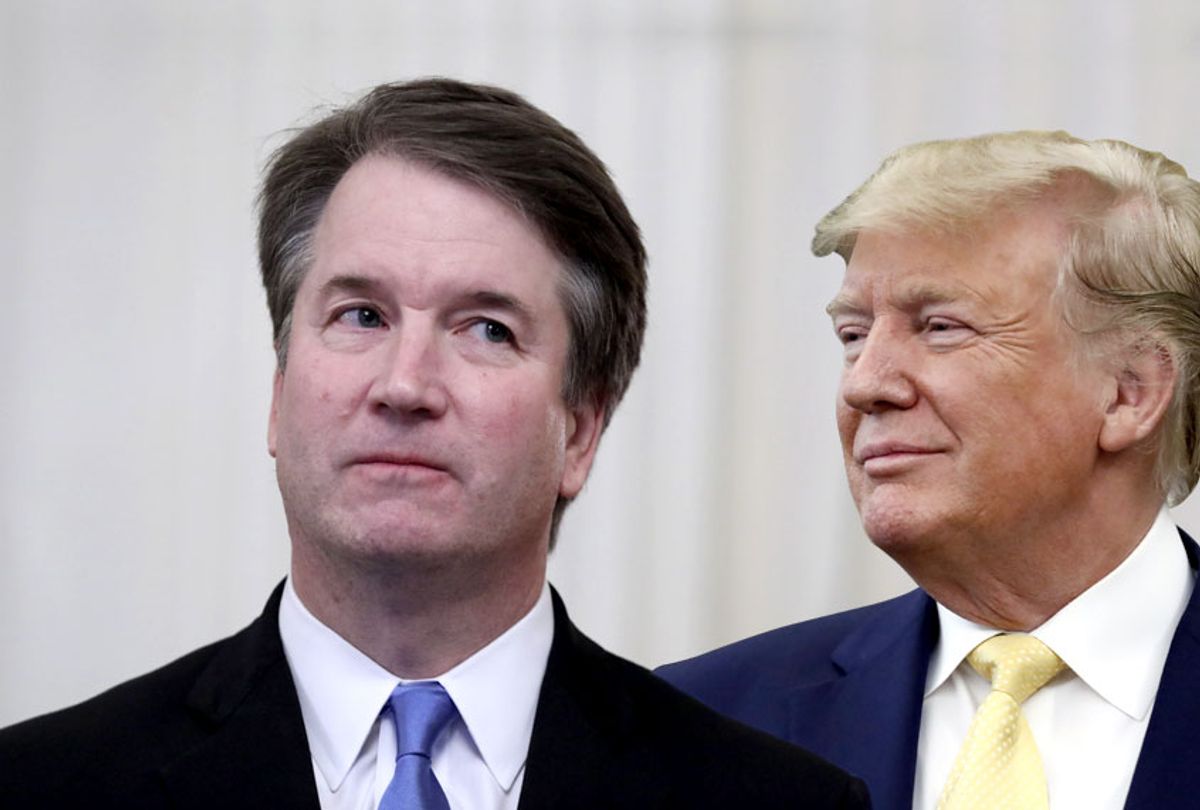The U.S. Supreme Court late Monday delivered a victory for the Republican Party by barring the crucial battleground state of Wisconsin from extending its Election Day deadline for the arrival of absentee ballots amid the pandemic, with Justice Brett Kavanaugh issuing an ominous concurring opinion that echoes President Donald Trump's false narrative on mail-in voting.
The 5-3 decision along ideological lines — with the court's five conservatives in the majority — blocked a request by Wisconsin Democrats and voting rights groups to revive a federal judge's ruling from last month that would have allowed mail-in ballots to be counted if postmarked by Election Day and received by Nov. 9, a six-day extension of the current deadline of Nov. 3 at 8:00 pm.
Wisconsin Republicans quickly appealed the order, and the U.S. Court of Appeals for the Seventh Circuit blocked the ruling earlier this month.
In raising alarm about the potential consequences of the Supreme Court's decision to uphold Wisconsin's strict Election Day deadline as ongoing mail delays heighten fears that many ballots could arrive late, legal analysts pointed with particular dismay at the reasoning of Kavanaugh, characterizing the right-wing justice's 18-page opinion (pdf) as a blaring signal of his willingness to abet a possible attempt by Trump to stop the counting of valid absentee ballots.
"For important reasons, most states, including Wisconsin, require absentee ballots to be received by Election Day, not just mailed by Election Day," Kavanaugh wrote. "Those states want to avoid the chaos and suspicions of impropriety that can ensue if thousands of absentee ballots flow in after Election Day and potentially flip the results of an election. And those states also want to be able to definitively announce the results of the election on Election Night, or as soon as possible thereafter."
Writing for Slate, court reporter Mark Joseph Stern argued that "it is genuinely alarming that the justice cast these aspersions on late-arriving ballots," noting that at least 18 states and the District of Columbia count ballots that arrive after Election Day.
"And, in these states, there is no result to 'flip' because there is no result to overturn until all valid ballots are counted," Stern wrote. "Further, George W. Bush's 2000 election legal team — which included [newly confirmed Justice Amy Coney] Barrett, Kavanaugh, and Roberts — argued during that contested election that ballots arriving late and without postmarks, which were thought to benefit Bush, must be counted in Florida."
"Whatever the reasons behind Kavanaugh's performance on Monday," Stern continued, "he has given the nation another legitimate reason to fear that this election may end with a Bush v. Gore–like disaster for American democracy, but even worse than the original."
Just minutes after the Supreme Court issued its ruling Monday night, Trump falsely tweeted that there are "big problems and discrepancies with Mail In Ballots all over the USA."
"Must have final total on November 3rd," Trump added. Twitter flagged the president's post as misleading and observers hastened to point out that the final vote count is never complete and final by Election Night.
Following the Supreme Court's ruling and Trump's tweet, Rep. Ro Khanna, D-Calif., first vice chair of the Congressional Progressive Caucus, urged the public to "forget the polls" showing Democratic nominee Joe Biden with a lead over the incumbent president.
"We need overwhelming turnout to overcome a looming constitutional crisis," Khanna said.



Shares